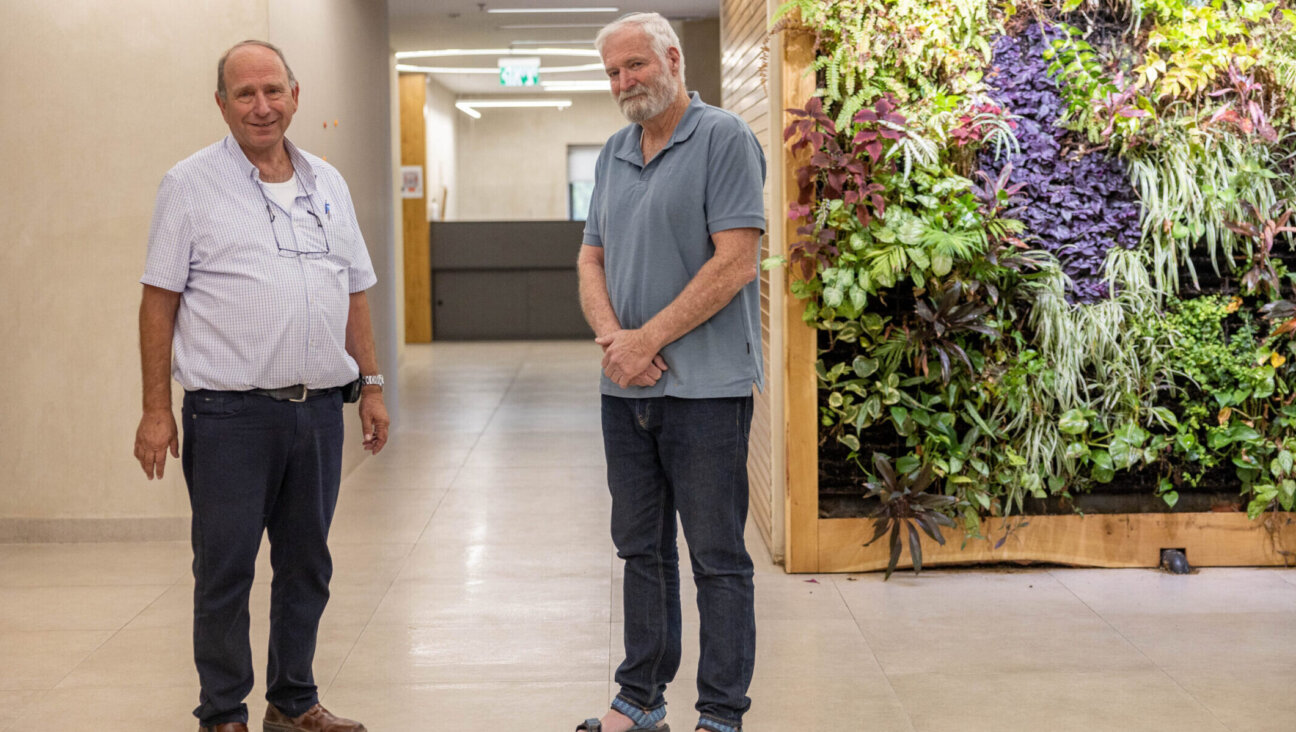Iran Refugees Languish in Legal Limbo
A year ago, Jahangir Navidpour, a 58-year-old Jew from the Iranian town of Shiraz, arrived in Vienna, home to the processing center for Iranian refugees heading to America.
During the eight months it took for his family of five to be cleared for arrival in the United States, they were stuck living in a tiny Viennese apartment, with no hope for work and no money to explore the city. The winter was frigid and no one in Navidpour’s family spoke German.
The worst part, though, was the endless and uncertain cycle of dealing with the bureaucratic process. His family was interviewed and granted refugee status by the U.S. Department of Homeland Security after three months, but they spent the next five months waiting on edge for Homeland Security and the FBI to run a name check on his 19-year-old son. As it was explained to Navidpour, this was necessary for all men “who could carry a gun.” Only in July did his family make it to their new home in Los Angeles.
Speaking now, Navidpour is just happy he got through when he did.
During the last few months Homeland Security and the FBI have begun to work out the kinks in the name-check system, bringing the waiting time for some refugees down to five or six months, according to Eric Newman, director of international operations at the Hebrew Immigrant Aid Society, which runs the processing center in Vienna. But, Newman said, a new roadblock has cropped up for refugees coming through the Austrian city.
Since March, Homeland Security, which adjudicates the claims of refugees, has begun to reject the applications of many Iranian religious minorities seeking American refugee status in Vienna. From March to August, the most recent months for which statistics are available from HIAS, the department rejected 28% of the Jewish refugee cases in Vienna, up from 0% the year before. Jews make up 22% of the refugee caseload coming from Iran. Among Iranian Christians in Vienna, the rejection rate jumped to 58% from 37% before March.
According to HIAS estimates, 500 refugees whose applications have been rejected are now stranded in Vienna. “It’s bad,” said Navidpour, who helped as a translator at HIAS, and was there when the first refugees were denied. “I cry for all those people who were rejected.”
No one seems to have a clear explanation for the spike.
Refugee advocates in Washington have been working on a number of potential solutions to help end the string of rejections. Republican Senator Arlen Specter of Pennsylvania has introduced legislation that would extend to Iranian religious minorities the favored status now granted to religious minorities from the former Soviet Union. For these refugee candidates the American interviewer is instructed to consider the history of persecution in the refugee’s home country rather than just the refugee’s immediate situation, effectively “lowering the bar” for admittance, as Newman put it.
Refugees are defined as immigrants who have left their home countries out of a fear of persecution. The classification is further defined by what some describe as an arcane set of rules from the early 1980s.
Specter’s proposed legislation to alter these definitions for Iranian refugees, which has made it through the Senate and is now before the House of Representatives, is far from assured, observers said. HIAS is also talking with Homeland Security officials about allowing rejected refugees under “parolee” status, an immigration category that can be granted to an entire population by the secretary of Homeland Security, Tom Ridge.
For now, the nearly 500 rejected refugees are drifting in a no-man’s land.
A spokesman at Homeland Security’s Citizenship and Immigration Service, Daniel Kane, denied that any pattern exists. “All refugee cases are adjudicated on a case by case basis, based on a well-grounded fear of persecution in the specific areas of race, religion, nationality, political opinion or social group,” Kane said. “Looking at the denial rate does not necessarily mean anything.”
Those who have been rejected, though, have meant a great deal to Austrian authorities. The Austrian government has not yet begun to deport the rejected refugees, but they have taken an equally severe step: In September the Austrians announced that they will no longer grant transit visas requested by HIAS for Iranian Christians, effectively shutting down the program for this population. The Austrians may take a similar step with Jews if the current situation persists.
“It’s supposed to be a short term transit point,” Newman said. “The Austrians never wanted to be a destination country for this population. When the population of denied applicants began to grow and tried to access the Austrian asylum system, they were very unhappy.”
For some critics of American asylum rules, a scaling-back of the refugee program for Iranian religious minorities makes sense. Critics of the Jewish refugee program say that many other refugees would benefit more from a move to the United States than the religious minorities in Iran, especially Jews, who have the option of going to Israel.
“We’re not taking them all,” said Mark Krikorian, director of the Center for Immigration Studies. “In picking the drop in the bucket who we do help, rather than picking who has the most savvy representative in Congress, we should take people who will never find a home in any other country, and who need to get out right away.”
This explanation strikes Newman as facile, given that in Iran it is illegal for a Jew to emigrate to Israel. “If the Iranian government knew they were emigrating to Israel,” Newman said, “they would probably not be allowed to leave Iran.”
Estimates on the number of Jews still in Iran range from 12,500 to 40,000, and each refugee has his or her own reason for wanting to leave. Navidpour said he decided to take his family out of Iran when the police brought him in for questioning in relation to a robbery at his brother’s jewelry store and ended up torturing him for three days.
HIAS advises refugees who have been rejected in Vienna not to return to Iran for fear that the discrimination and harassment will be even worse than the conditions that provoked the refugees to leave Iran in the first place. The rejected Jewish applicants have the option of going to Israel, but Newman said it is an understandably less attractive choice given that many of the refugees in the program are coming to join family members in the United States. Going to Israel is not even an option for the other Iranian religious minorities who come through Vienna.
Navidpour said he has a hard time imagining what life must be like for stranded refugees.
“It is not a good life to be living, for any period of time,” Navidpour said.
A message from our CEO & publisher Rachel Fishman Feddersen

I hope you appreciated this article. Before you go, I’d like to ask you to please support the Forward’s award-winning, nonprofit journalism during this critical time.
We’ve set a goal to raise $260,000 by December 31. That’s an ambitious goal, but one that will give us the resources we need to invest in the high quality news, opinion, analysis and cultural coverage that isn’t available anywhere else.
If you feel inspired to make an impact, now is the time to give something back. Join us as a member at your most generous level.
— Rachel Fishman Feddersen, Publisher and CEO






















